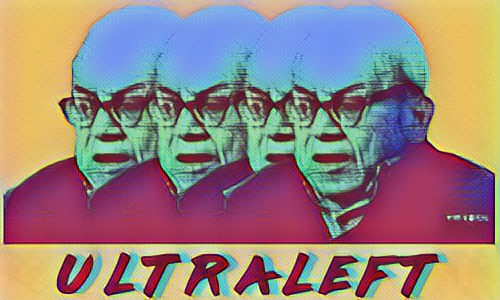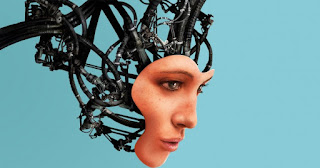The Ütopian Society

"...anarchists also are people and, as such, contain the billion-faceted varieties of human reference. Some are anarchists who march, voluntarily, to the Cross of Christ. Some are anarchists who flock, voluntarily, to the communities of beloved, inspirational father figures. Some are anarchists who seek to establish the syndics of voluntary industrial production. Some are anarchists who voluntarily seek to establish the rural production of the kibbutzim. Some are anarchists who, voluntarily, seek to disestablish everything including their own association with other people, the hermits. Some are anarchists who deal, voluntarily, only in gold, will never co-operate, and swirl their capes. Some are anarchists who, voluntarily, worship the sun and its energy, build domes, eat only vegetables, and play the dulcimer. Some are anarchists who worship the power of algorithms, play strange games, and infiltrate strange temples. Some are anarchists who only see the stars. Some are anarchists who only see the mud.
They spring from a single seed, no matter the flowering of their ideas. The seed is liberty. And that is all it is. It is not a socialist seed. It is not a capitalist seed. It is not a mystical seed. It is not a determinist seed. It is simply a statement. We can be free. After that it's all choice and chance." -Karl Hess
The Ütopian Society is born from the seed of liberty. With the liberation of the Magi slaves a New Era is on the horizon. The Magi are no longer considered an elevated class as under the Covenant. Rather all people are granted the Magi's consciousness in its liberated form. With this resolution, Loren Ütopian as well as Morwenna and Morulan write the New Charter.
A key feature of Ütopian's governing maxim of the New Charter is an uncertainty principle, incompleteness theorem, or law of unintended consequences, known as The Perpetual Precept. This will allow for the optimization of the interconnected-dynamic system that is the Ütopian Society on the scale of the solar system.
The Perpetual Precept is the concept that precise, simultaneous measurement of some complementary variables is impossible. When one is known the other is unknown. Any calculation in social relations cannot be both widely known and continue to yield accurate predictions, or in other words, the more known a particular calculation in the psychic sciences, the less accurate will be the predictions it yields. The future is thus largely unknown. This effectively ends the Covenant of the Future Seers.
The Perpetual Precept shows that any logical system consists of either contradiction or statements that cannot be proven. The Perpetual Precept indicates that the formal systems in use are not complete. A formal system is a system of axioms, containing rules of inference, which allow one to generate new theorems. It also indicates that no prediction in psychic science or mathematical magic can ever be 100% certain. Actions will always produce unknown effects.
The Perpetual Precept includes The Rule of Three, which indicates the three consequences to any action.
1. Unexpected benefit: A positive unexpected benefit to an action. (Positive feedback)
2. Unexpected drawback: An unexpected detriment occurring in addition to the desired effect of the action. (Side-effects)
3. Perverse result: A perverse effect contrary to the originally intended action. (Backfire)
2. Unexpected drawback: An unexpected detriment occurring in addition to the desired effect of the action. (Side-effects)
3. Perverse result: A perverse effect contrary to the originally intended action. (Backfire)
The New Charter establishes the Perpetual Precept as the governing principle of the Ütopian Society. By fostering uncertainty, The Perpetual Precept allows freedom to flourish. The interconnected-dynamic system is what optimizes the Ütopian Society, in rejection of the rigidity of the Covenant of the Future Seers. This is the synthesis of coexistence and coevolution.
The Perpetual Precept concludes that the common good emerges from individual motives: it is an unintended consequence of human actions. These unintended consequences, which emerge almost by accident, are beneficial and are then imitated. The seed of liberty is a mechanism through which the coordination of divergent human purposes is achieved. Therefore, each individual should pursue his own predilections. Loren Ütopian is led to the ideal of non-governing and to the method of letting things alone.
Loren Ütopian liberates the Magi slaves and they are free to leave the Moon and spread peace between the Wizard and Prophet peoples. By synthesizing their competing scientific paradigms, the Magi bring about the New Era ordained by the New Charter. In addition to The Perpetual Precept, The New Charter lays out several principles of the Ütopian Society.
Political Principles: Society is steered by citizenry in a largely individualist, communal, social, egalitarian, pluralistic and libertarian government. The term government is not used as power is seen to corrupt. Societies are autonomous and free to organize as they see fit in accordance with individual freedom. Everyone is considered a Dual Citizen of the New Heavens and New Earth.
Economic Principles: Money is abolished. An egalitarian credit system is established. Class is abolished. Citizens do work that they choose not as assigned by caste. Education is free and a pursuit of academia is an alternative to working life.
Technological Principles: In some cases, technology may be embraced to enhance the human living experience and make human life easier. Other ideas propose that technology drives a wedge between humanity and nature, therefore becoming a detriment to society. The New Heavens recreates the spirit of the Celestial Technotopia - in pursuit of endless worlds, realms, and possibilities; seeking to colonize other planets; evolving humanity with science and technology via extending life and diminishing work.
Ecological Principles: Back to nature, humans live harmoniously with nature and reverse the negative effects of industrialization. The New Earth rejuvenates a Terrestrial Ecotopia in which bio-egalitarianism results in cross-species community, organic models of natural processes lead to ecologically compatible design, and considering the planet as a living organism propels a new stewardship paradigm.
Philosophical Principles: Ütopian Society believes in a common religious philosophy but is open to all diversity of beliefs. Some fashion this project around the recreation of the biblical Garden of Eden in the reunion of the New Heavens and New Earth. From its inter-religious perspective, all ideas of God are welcomed. Simultaneously, in its intra-religious perspective, a singular idea of God is accepted and practiced by all citizens in Ütopian Society.
Societies exist on a strand of probability. Complexity theory suggests the inherent interconnectedness and dynamism of these systems. These are systems that have many elements or many parts that are always interacting and changing.
The Ütopian Society consists of societies. They are always open and undergoing a constant state of adaptation. They are also completely flat so no one is running them. They run themselves. They are self-organizing and self-optimizing. They will also tend towards the best possible system of interaction.
They are not just complicated in that they have a lot of elements, they are complex in that their interactions cannot only be understood from analyzing the components. So you could not slice through or pause the system to understand it. For this reason they cannot be predicted.
These interconnected-dynamic systems are necessarily always already in motion and changing. They are balanced at a point that is known as far from equilibrium or on the edge of chaos. They cannot be static or rigid or else they would not survive. They dwell at the point of criticality, a threshold between rigid order and chaos.
Because an interconnected-dynamic system must be flat, it is an egalitarian society which works through feedback relationships. Certain relations establish themselves between the elements of the system. If they work than they are reinforced and if they do not than that connection dissolves.
The different elements take on different roles depending on where the feedback relationships are particularly strong or where new ones need to be developed. This taking on of new roles can only happen if it is a flat system. If there was a hierarchy then it would be too rigid for one element to freely form a new connection with another element. In the Ütopian Society individuals as well as societies are free to adopt new roles and new relationships.
The Ütopian Society is always anticipating and incorporating changes. When these feedback relationships are allowed to flourish within the system these relations produce unpredictable but positive effects. These changes happen to be beneficial to the overall system so that the system is not disrupted by interconnection and dynamism but made stronger. The Ütopian Society is alive.
Loren Ütopian lives in the Magi's Tower but he does not rule the people of the solar system. He is merely a watchman for a self-governing, self-organizing, self-optimizing system. The Magi continue to operate the lunar computer but under the guide of The Perpetual Precept. The open access to the algorithms gives freedom to all who want to shape their own future. There is no central authority anymore so the people of the solar system are now able to use free thought to their advantage. All are granted the Magi consciousness in its liberated form.The Magi had always been willing to explore unknown opportunities, to innovate, to push the boundaries of scientific inquiry. They will continue to do so.
The solar system is populated by people of all roles. No longer are there competing castes of Wizards and Prophets. Every individual is free to pursue a path of self-realization. Some will gaze onwards to the stars. Some will feel the tremble of the ground. Some will experiment with rocketry and teleportation. Some will study the growth of exotic species. Some will dance like the shimmering comets. Some will sing the song of devotion to the planet. All are free.
Those who fully embrace this new future will find that everything is more rewarding – they will find their own ways to help. They will not be driven towards any one role by anything that exists. Instead, they will be encouraged to do more than just live – they will be encouraged to make things better by their actions and by the results they bring to those around them. Those that do this will flourish.
It is our belief that such freedom will produce a new society in which everyone has a place. That all those that live and work together are free to pursue themselves.



Comments
Post a Comment